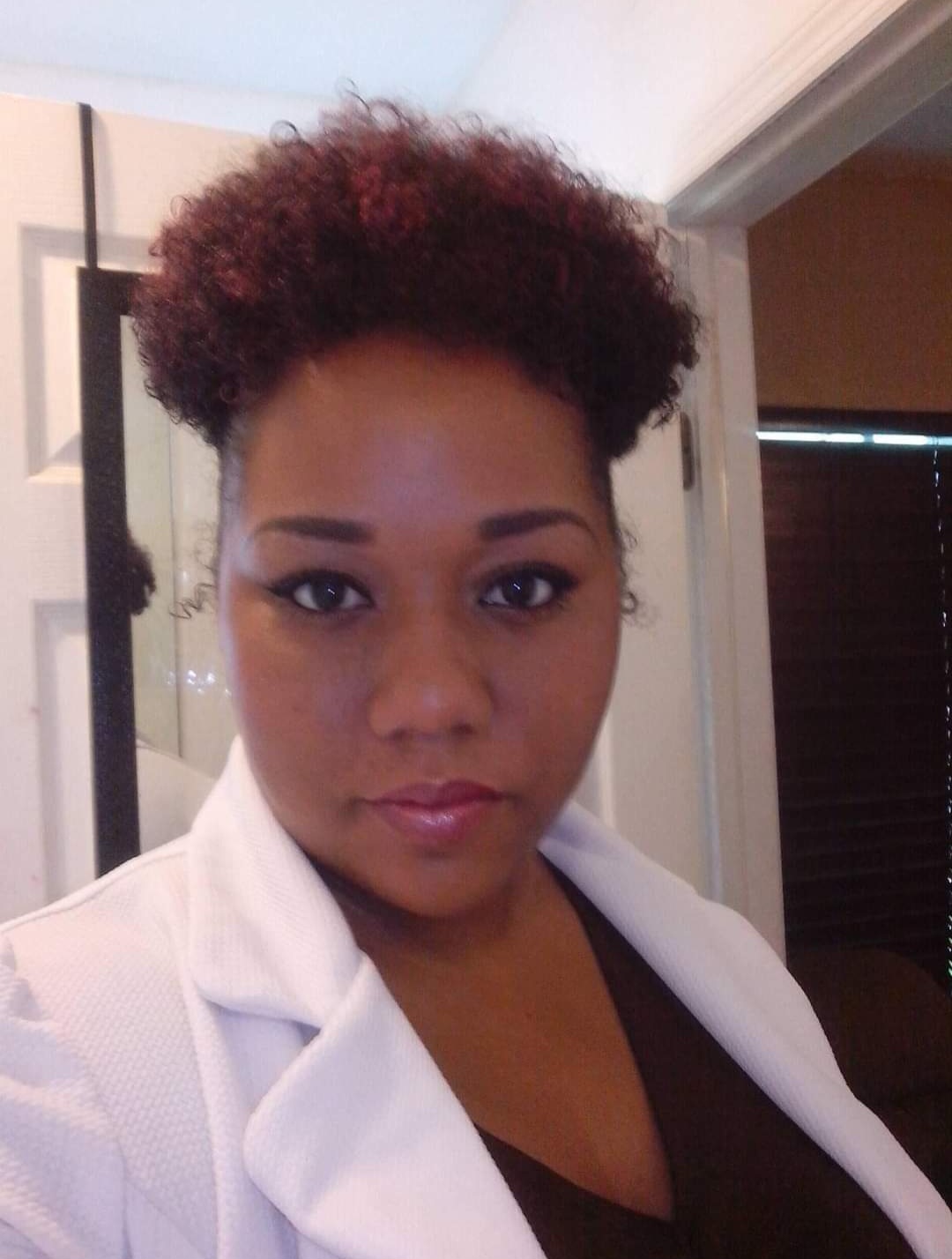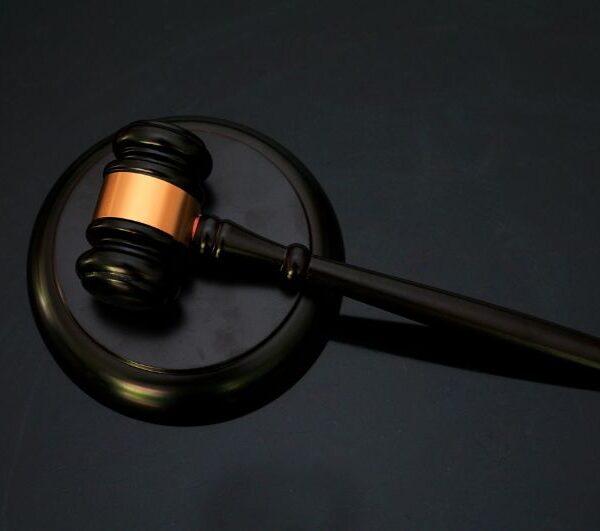
Ericka J. Lynch
|
Getting your Trinity Audio player ready...
|
By Alric Lindsay
Ericka J. Lynch, a woman who was sentenced to 4 ½ years imprisonment for indecent assault against her friend and facilitated her boyfriend’s act of unwanted oral sex on her friend, appealed to the Court of Appeal to have her conviction overturned on the basis that she did not have a right to a fair trial. Lynch heard the decision of the Court of Appeal today, October 11, 2024, dismissing her appeal.
Background
The background of the case is that Lynch, her female friend of over 15 years and her boyfriend, Antonio Marshall, initially had drinks at Marshall’s address on April 17, 2021. When Lynch’s friend was leaving the house, Lynch reportedly told the friend that “Marshall could perform oral sex on her.”
In response, Lynch’s friend told Lynch, “She did not want that.”
The next day, April 18, 2021, Lynch planned a birthday celebration for Marshall at the White House restaurant. Lynch invited her female friend to the party.
Based on the judgment, the party moved to the Power Supply Bar after having food, drinks and dancing.
However, things turned for the worse in the parking lot at Power Supply Bar.
Regarding this, the judgment explained:
On arrival at the Power Supply Bar, Marshall parked the vehicle and reclined the driver’s seat all the way back.
As the complainant tried to get out of the rear of the vehicle, Marshall pulled her dress to hold her back and tried to put his head under her dress. She proceeded to open the door and exit the vehicle.
Subsequently, the three of them went inside the Power Supply Bar, drank, danced together and had a good time.
When Lynch’s friend was ready to leave, she reportedly attempted to call someone to collect her, not wanting the parking lot incident earlier that evening to be repeated. However, Lynch’s friend was unsuccessful in reaching anyone.
When the trio exited the Power Supply Bar, Lynch got into the driver’s seat, and Marshall got into the back seat with Lynch’s friend.
Reportedly, as they approached the Camana Bay roundabout, Marshall held Lynch’s friend down, pushed his head under her dress and started to perform oral sex on her. Lynch’s friend reportedly shouted to Lynch to get Lynch’s boyfriend to stop.
Lynch’s friend tried pushing Marshall off and continually told him to stop, but he kept pushing her down with force. Lynch’s friend cried out as Marshall performed oral sex on her. The incident lasted some 20 minutes.
Eventually, the trio arrived at Marshall’s home, where Lynch’s friend begged Lynch to tell Marshall to stop. However, Lynch pulled her friend’s upper body down on the back seat and started to suck on her breast whilst repeating that things were ok.
After the assault stopped, the three of them went inside the house, at which time Lynch’s friend called her boyfriend to collect her.
Lynch’s friend told her boyfriend and mother what happened the same evening and informed her boss the next day.
Although Lynch sent a message to her friend saying she was sorry for the incident, Lynch’s friend made a formal report to the police on April 19, 2021.
The Trial
Both Lynch and her boyfriend claimed at trial and in the police interview that the sexual activity was consensual. Lynch and her boyfriend added that Lynch’s friend had been flirtatious at the brunch and Power Supply Bar and had participated enthusiastically in the sexual activity in the vehicle.
The jury rejected their evidence that Lynch’s friend consented and convicted Lynch and her boyfriend of indecent assault.
The Appeal
Lynch’s appeal is based on the fact that her friend was no longer available for cross-examination after being questioned for hours during the trial. Reportedly, her friend became distressed one day and did not return to court the next day to be cross-examined.
Instead of returning to Court, Lynch’s friend sent a medical report, stating that she could not provide further testimony. As a result of this, Lynch’s lawyer was unable to complete the cross-examination of Lynch’s friend. In the circumstances, the judge gave proper directions to the jury regarding the incomplete cross-examination.
Lynch subsequently appealed the jury’s guilty verdict on the basis that Lynch was deprived of a constitutional right to cross-examine and to a fair trial.
The Court of Appeal’s judgment
Having reviewed Lynch’s ground of appeal, the Court of Appeal said:
In our judgment, the consistent theme of these cases is that where cross examination of a prosecution witness is curtailed because the witness becomes unavailable, an appellate court has to consider all the circumstances of the case when considering whether the limitation of cross examination has led to an unfair trial. Important aspects will include the extent to which cross examination has occurred and the significance of the witness’s evidence to the prosecution case.
Furthermore, as Lord Justice Moses made clear in PM v The Queen, the trial judge is in the best position to determine whether a fair trial is possible despite the limitation of cross examination. And an appellate court should only interfere where the judge’s decision not to discharge the jury is plainly wrong.
The judgment added:
Mister Lashley KC submits that in this case the complainant’s evidence was the sole evidence against both defendants and that as shown by the list of matters defense counsel still wish to raise with the complainant, the appellant was seriously prejudiced by the inability of her counsel to complete his cross examination. The trial was therefore unfair.
He further submitted that before deciding that the trial should continue without further evidence from the complainant, the judge should have called the doctor who had provided a report to give evidence so that there could be exploration of how long it might take for the complainant to recover sufficiently to resume giving evidence and/or whether special measures such as her giving evidence by live link, would enable her to continue.
The judgment continued:
We have carefully considered Mister Lashley’s submissions, but we have no hesitation in concluding that, on the facts of this case, the fact that cross examination of the complainer could not be completed has not led to the trial of the appellant being unfair.
The judgment concluded:
We would summarize our reasons for this conclusion as follows:
This was not a complex case. The allegation of indecent assault related to events during the journey from the public supply bar to Marshall’s home and immediately upon arrival outside his home.
As Mister Lashley accepted, the complainant had been cross examined for some 10 hours (less periodic short breaks) by two counsel, approximately 5 hours by Mr Barton on behalf of Marshall, and some 5 hours by Mister Myers on behalf of the appellant. The cross examination had been spread over some four days.
Mr Barton on behalf of Marshall, cross examined the complainant at length about the events the previous evening at Marshall’s home, at the brunch, at the Power Supply Bar, and in the vehicle on the way to Marshall’s home. Although he said that he was leaving certain matters for Mr Myers to deal with, he nevertheless put fully and in detail his client’s case about events in the backseat of the vehicle and had full opportunity to probe and test the complainants evidence in that respect.
Mr Myers then took over. We have to say that there appears to have been a considerable degree of repetition in matters raised with the complainant. Thus, Mister Myers cross examined her about events the evening before at the brunch, on the journey to the Power Supply Bar, at the Power Supply Bar, and a complainant’s decision to leave with the appellant and Marshall despite what had happened when Marshall tried to put his head under her dress. He further questioned the complainant in very considerable detail about exactly how the alleged indecent assault by Marshall and by the appellant had occurred in the backseat of Marshall’s vehicle. He further questioned her about her decision nevertheless then to go into Marshall’s home despite on her case having just been indecently assaulted.
We accept Mister Lashley’s point at the prosecution case was entirely dependent upon the complainant’s evidence. However, the judge reminded the jury of this fact. In relation to the curtailment of the cross examination, she directed the jury in accordance with the direction in Stretto, namely that they should acquit unless they were satisfied that they had had sufficient opportunity during the cross examination which had heard to assess the credibility of the complainant. By their verdict, the jury clearly concluded that they had had sufficient opportunity. This is hardly surprising. In our judgment, the jury had had ample opportunity over the lengthy cross examination which had occurred to assess her credibility. And during that period, defence counsel had been able to probe the complainant’s evidence in considerable detail and had been able to put their respective cases. Indeed, in our view, the cross examination in this case had been repetitive and over lengthy. A trial judge may and indeed should properly integrate to limit repetitive and over limited cross examination.
The only matters counsel had not raised with complaints were those listed earlier. These were essentially peripheral points.
In summary, cross-examination in relation to the essential points of the defence case had been completed and the jury was given a strong direction concerning the fact that cross-examination had been curtailed and that the jury should first consider whether they had had a proper opportunity to assess complainant’s credibility.
In our judgment, the judge’s decision to continue the trial cannot be criticized. And her direction to the jury on this aspect was impeccable.
In the circumstances, we do not consider that the trial of the appellant was unfair, nor is her conviction unsafe or unsatisfactory. We gave leave to appeal but dismissed the appeal.





